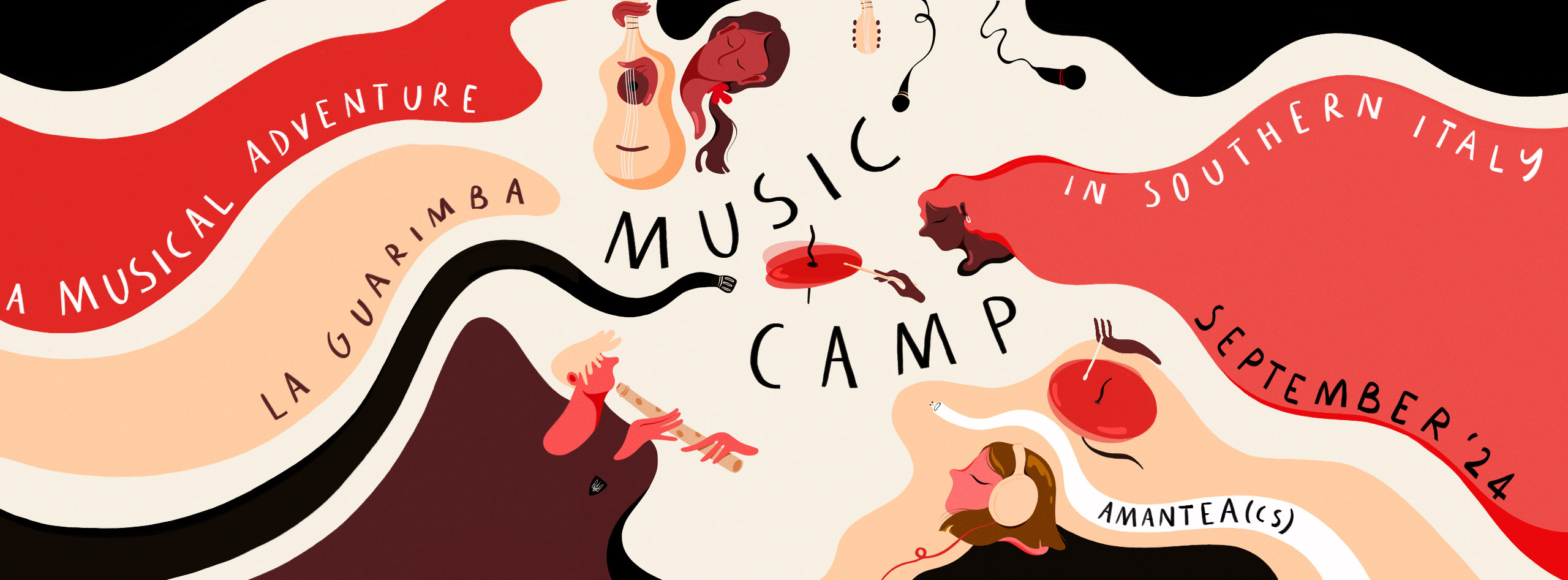The first edition of the Music Camp took place in Amantea (CS) from September 5th−29th, 2024. The project was carried out thanks to the support of Culture Moves Europe, funded by the European Union and implemented by the Goethe-Institute and involved 5 Ukrainian musicians from very different musical backgrounds. The spaces used for the project include La Piccola Biblioteca di Amantea, the new multifunctional cultural center purchased by our association, based in via Mazzini 26. Opened on August 6th, 2024, the space consists of a study room, a conference and projection room, and a music studio.
The camp focused on fostering creativity, collaboration, and the desire to produce music together.
One of the main objectives was to introduce the participants to creative exploration, encouraging them to step out of their comfort zone, especially in the matter of musical genres, and to produce compositions that reflect this principle.
The goal of our approach was not only to support and nurture the creative path of the artists involved, but also to promote Calabrian musical talent, thanks to the meetings held with local musicians and the collaborations that we encouraged.
Our way of supporting the Ukrainian people − victims of a horrible invasion − was through contributing to the creation of new artistic heritage at a time when war is systematically erasing national identity through the destruction of culture and the values it conveys.
This is the result we are most happy with: to have helped women artists grow as creative minds and to have reinforced each of their personal and shared goals to create an immortal legacy for their country.


























